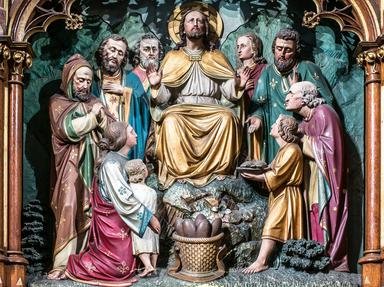Quiz Answer Key and Fun Facts
1. God told Abraham to listen to her, his wife (Genesis 21).
2. She tricked her husband into giving Esau's blessing to her favorite son (Genesis 27).
3. She was a prophetess, a worship leader, and she was brave enough to make sure that her brother was safe as a baby (Exodus 2).
4. Her ex-husbands and their father weren't treating her right, so she took matters into her own hands to obey God's law (Genesis 38).
5. She was a prophetess, a military leader, and a ruler over Israel (Judges 4-5).
6. She was a heroine who killed the enemy with a tent peg (Judges 4-5).
7. She evidently didn't want her son circumcised, but when she saw that God was going to kill her husband, she performed the circumcision herself and saved his life (Exodus 4).
8. God chose this prophetess to speak the words of the Lord to the male priest and king (2 Kings 22).
9. She refused to allow men to objectify her and lost her title as queen in the process (Esther 1).
10. She was a Jewish girl who became the Queen of Persia and helped to save the Jewish people from annihilation (Esther).
Source: Author
Ceduh
This quiz was reviewed by FunTrivia editor
LeoDaVinci before going online.
Any errors found in FunTrivia content are routinely corrected through our feedback system.
